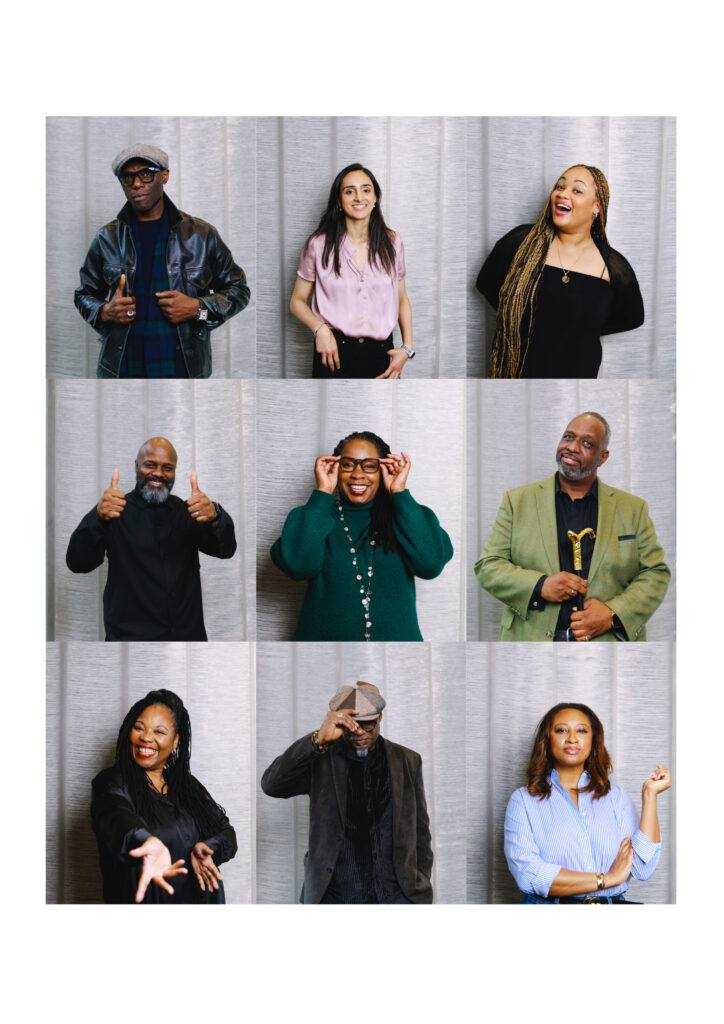Black Lives in Music (BLiM) has appointed a new board and taskforce.
The organisation was set up to address racial inequality in the music industry and create opportunities for Black, Asian and ethnically diverse musicians and professionals.
And with this lineup representing some of the leading music executives in the UK, there is immense talent and experience assisting founders Charisse Beaumont (Chief Executive) and Roger Wilson (Director Of Operations).
“We are thrilled to welcome our new board and taskforce to Black Lives in Music,” says Charisse Beaumont, “We are consistently expanding our activities and campaigns, ultimately with an aim of making the UK music industry a safe and equal place to work. Our collective strength lies not only in our leadership across music, charity, legal, finance, people and talent, education, but also in our unparalleled prowess in business and entrepreneurship. Yet, our quest for exceptional leaders continues as we seek to expand our influence across the music sector. The sort of experience and influence that these talented individuals bring to us will be invaluable for projects like our Anti-Racism Code Of Conduct, 10 Point Orchestral Plan and the forthcoming Bullying and Harassment Survey. Our dedication stems from a deep-seated care for the music industry and it’s future. At Black Lives in Music, we’re not just challenging the industry, we’re redefining it.”
Since its founding in 2020, Black Lives in Music has produced a seminal piece of research in 2021’s ‘Being Black in the Music Industry’ survey – the largest ever survey of data focused on the experiences of Black musicians and industry professionals. BLiM found conclusive evidence supporting the long-held beliefs about racial discrimination in the industry. The survey illustrated troubling experiences of systemic and institutionalised racism in the UK Music Industry. BLiM findings also included: significant effects on the mental health of Black women and the disabled, disproportionate disparity in earnings for Black women, and the desperate need for the music industry to create an Anti-Racist Support Service. Since then they have partnered with over 100 organisations, using this crucial data to put real change into action. Read the report ‘Being Black in the Music Industry’ here.
Last year, Black Lives in Music gave evidence at the Women and Equalities select committee’s Misogyny In Music Inquiry, which recently reported. It found the UK music industry to be a “boys’ club” where discrimination, sexual harassment and abuse is common, and the non-reporting of such incidents is high. BLiM’s evidence resulted in some key recommendations – enforcement and possible amendment of Section 14 of the Equality Act to better protect those facing intersectional inequality. Record labels should regularly publish the diversity of their creative rosters, plus all organisations with more than 100 employees should be required to publish data on the diversity of their workforce and gender and ethnicity pay gaps. And that organisations in the music industry should provide mandatory equality, diversity and inclusion training.
BLiM recently announced a 10 Point Orchestra Plan for orchestras to overhaul their recruitment policies to give more opportunities to Global Majority players. And a Bullying and Harassment Survey for music industry creatives will be announced soon, to bring yet more crucial data and lived experience to light.
BLiM’s Roger Wilson says, “The board of Black Lives in Music have played a significant role in its ongoing success. We’re proud to announce our most recent appointments. They are all accomplished individuals – change makers with stellar career profiles. We’re confident that they will be significant in their contribution to our organisation. Their energy, knowledge and experience will be key drivers in their support of our work. We welcome them and look forward, still more positively as we continue on our journey to achieving transformational change in the UK music sector.“
James Joseph, Chair of the BLiM board says, “Black Lives in Music is an organisation well placed to hear the voices of those integral in creating this rich universe of creativity. I am honoured and excited to be an integral part of advocating a guided and informed response to offer effective change and much needed support to make a difference for positive development in our musical community and wider cultural landscape.”
Board:
James Joseph (Chair) – founder of James Joseph artist management
Moses Oyediwura (Vice Chair) – Sumaya Group investors
Janeace Thompson – Director of Talent & Culture and Experience at PRS for Music
Dr Kienda Hoji – music industry lawyer, artist manager, lecturer
Orphy Robinson MBE – multi-instrumentalist and composer
Alex Spofforth – Chartered Accountant
Taskforce:
Paulette Long OBE – Music Publisher, Chair of Music Publishers Association
Dr Mykaell Riley – Senior Lecturer at the University of Westminster, Director of the Black Music Research Unit, founder member of the band Steel Pulse
Yvette Griffith OBE – Chief Executive and Executive Director of Jazz: Refreshed
Kate Miguda – Violinist, board member of National Youth Orchestra of Scotland
Richard Henry – Trombonist
Shabaka Hutchings – Jazz musician, Sons Of Kemet
Adem Holness FRSA – Head of Contemporary Music – Southbank Centre
Faryal Khan-Thompson – SVP of Marketing and Community Engagement at CD Baby
Robert Mitchell – Jazz musician and composer
Victor Redwood-Sawyerr – Founder of Red 1 Arts music consultancy
Jamil Sheriff – Jazz Musician and Lecturer
Cleveland Watkiss MBE – vocalist, composer, actor
Video Credit: Aaron Adeleke
Photo Credit: Cali’ Fleur

